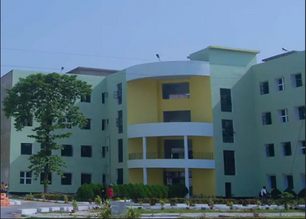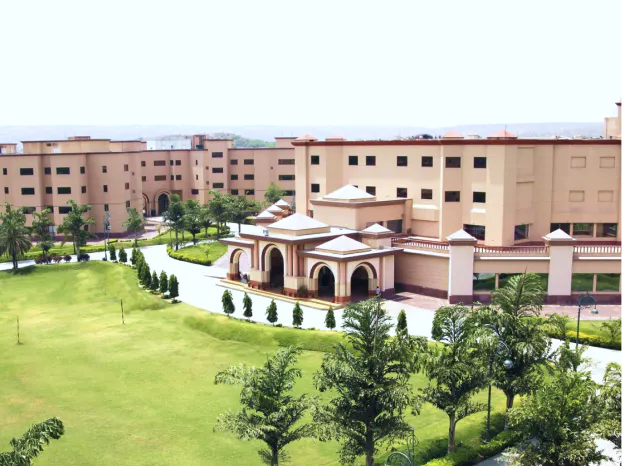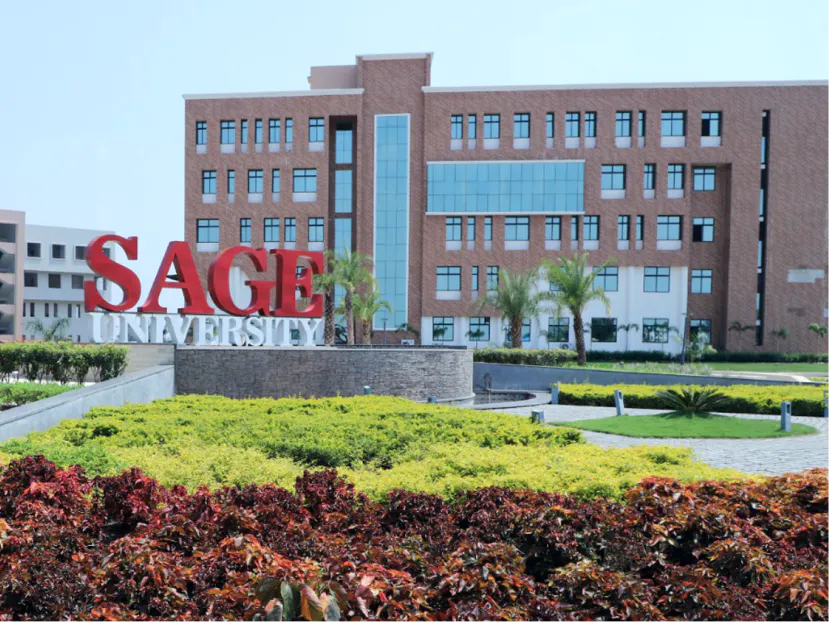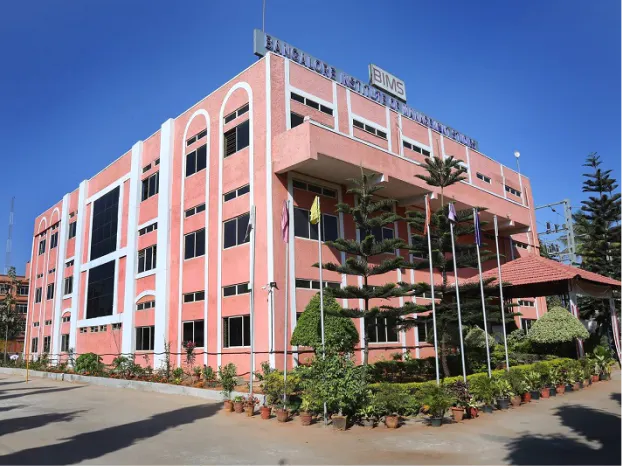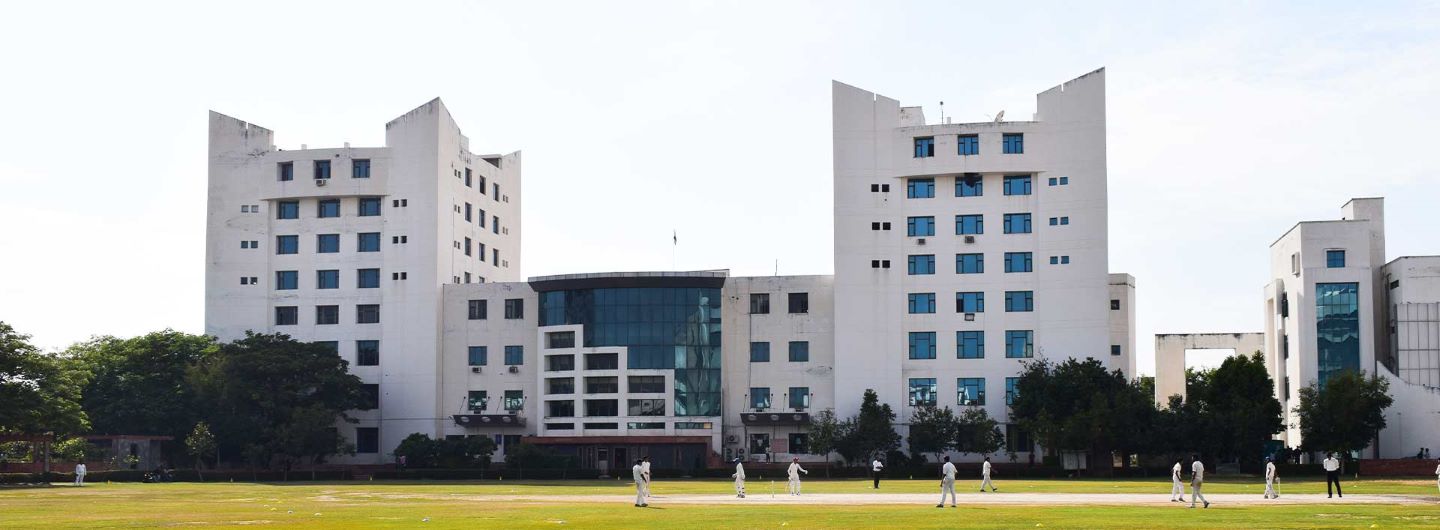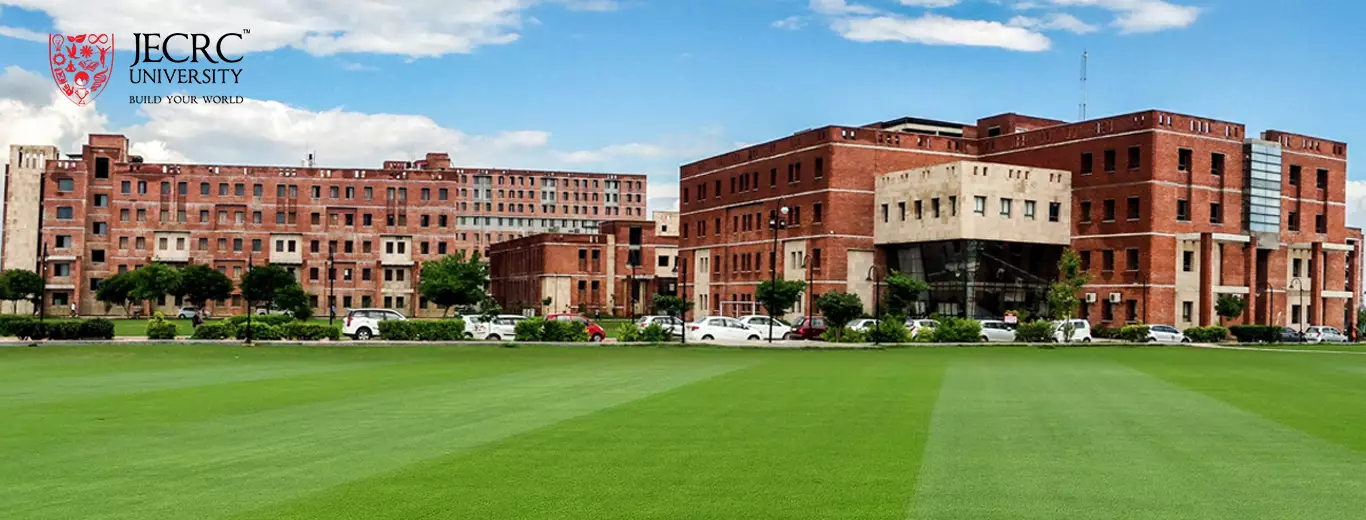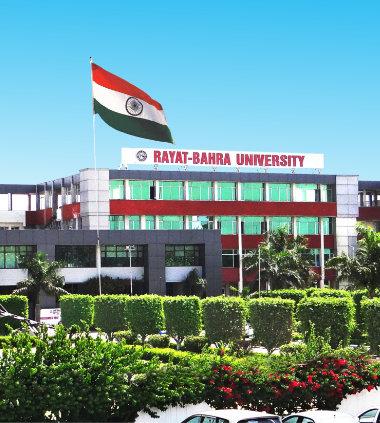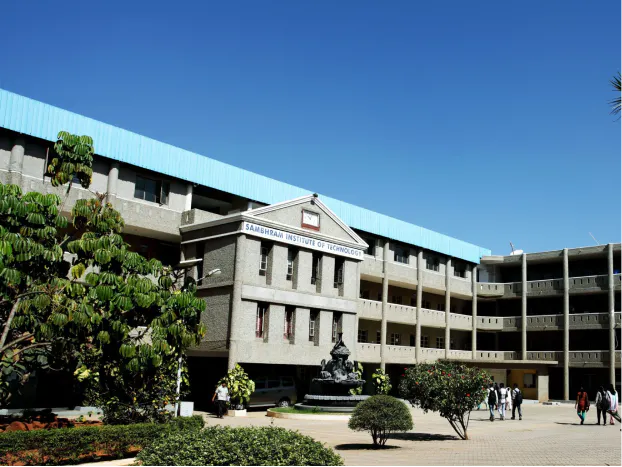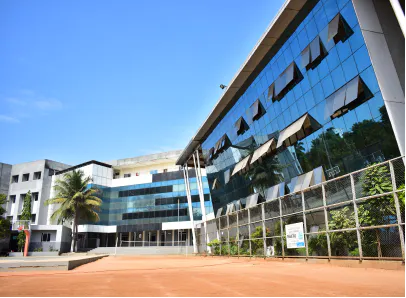Admissions 2025 Now Open! Call us at +91 70653 03030 or
Why choose MBA?
Top MBA Colleges in India with Sunstone
To know more about campuses Talk to our counsellors!!
Admission Process in MBA Colleges in India
The process

Submit the application form
The first step in the MBA admission process is to submit the application form to the university of your choice. The application form typically asks for basic personal information, academic background, work experience, and relevant undergraduate scores.
Appear for the admission test
Many MBA programs in India require applicants to take an admission test such as the CAT, XAT, MAT, CMAT or other similar entrance exams. These tests assess the applicant's aptitude and knowledge in various areas related to business and management.
Attend the personal interview
After the entrance test, many business schools conduct personal interviews to evaluate applicants' communication and leadership skills, work experience, and motivation to pursue an MBA course.
Application review
After completing the entrance exam and personal interview, the university will review the applicant's overall application, including test scores, academic background, work experience, and essays (if applicable).
Admission status
Lastly, the university will then notify the applicant of their admission status, which could be one of the following: accepted, waitlisted, or rejected.
MBA Eligibility Criteria in India
Most institutions in India adhere to the guidelines issued by AICTE, the apex body, about the minimum mark requirements. Although the eligibility for MBA in India depends largely on the institutes, there are some basic requirements that everyone must fulfill to apply for MBA programmes.
Read More- Candidates must have a graduation degree from any recognised university.
- Applicants can pursue their graduation in any stream (specific streams are mentioned in the case of specialisations)
- Applicants must have secured a minimum of 50% as an aggregate mark in their graduation.
- Applicants who are in their final year of graduation can also apply for the MBA degree.
- Almost all top MBA colleges in India allow admission after an entrance exam, and applicants must get the required percentile or cutoff for admission. Students need to clear entrance exams like CAT, MAT, XAT, GMAT, and so on to get admission into MBA programmes offered by good MBA colleges in India.
Once the entrance exam scores are released, colleges may take direct admission based on the score. As mentioned previously, some MBA college admission processes include conducting group discussions and personal interview rounds to select candidates.

Why is India
Top MBA Destination?
Leading Business Hub
An MBA in India offers exposure to a rapidly growing economy and business hub.
Top-Notch Coursework
Opportunities to learn evolving business strategies through coursework in business management.
Better Career Opportunities
Bright job prospects due to the high demand for managers in India's growing economy.
Focus on Practical Experience
Hands-on experience through internships or experiential learning opportunities in startups or MNCs.
Specializations Offered by the Top MBA Colleges in India
- Top colleges offer the best MBA specialisations that allow students to venture into the world of knowledge and explore new job opportunities. So, if you plan to pursue an MBA degree, make sure you know about all the MBA specialisations available. Below is a short description of the popular MBA specialisations in India:
MBA in Finance
- This specialisation entails the financial management of business firms, including financial planning, analysis, and decision-making.
MBA in Human Resource Management
- This specialisation calls for the management of human resources (HR) in organisations, including the recruitment, training and development of employees.
MBA in Logistics & Supply Chain Management
- This specialisation focuses on the management of the flow of goods and services from suppliers to customers.
MBA in International Business
- This specialisation entails the management of business operations in a global context, including cross-cultural communication and multinational business strategy.
MBA Big Data Analytics/ Data Science/ Business Analytics
- This specialisation deals with the analysis and interpretation of large data sets to make business decisions.
MBA in Banking & Financial Services
- This specialisation refers to the management of financial services, including banking, investment and insurance.
MBA in Operations Management
- This specialisation focuses on the day-to-day management processes or operations that produce and deliver a company’s products and services.
MBA in Insurance Business Management
- This specialisation entails the management of insurance companies, including underwriting, risk assessment and claims processing.
MBA in Healthcare Management
- This specialisation calls for the management of healthcare firms, including hospitals, clinics, and other healthcare facilities.
MBA in Rural Management
- This specialisation deals with the management of organisations and businesses in rural areas, including agriculture and rural development.
MBA in Pharmaceutical Management
- This specialisation refers to the management of pharmaceutical firms and the development, production and distribution of pharmaceutical drugs.
MBA in Energy Management
- This specialisation focuses on the management of energy companies along with the production, distribution and consumption of energy resources.
MBA in Retail Management
- This specialisation entails the management of retail businesses, including the design, implementation, and evaluation of retail strategies.
MBA in Infrastructure Management
- This specialisation consists of the management of infrastructure projects, including the planning, construction, and maintenance of roads, bridges, and other public works.
MBA in Entrepreneurship
- This specialisation calls for the development and management of new business ventures, including the identification and evaluation of business opportunities.
MBA in Agri-Business Management
- This specialisation deals with the management of businesses in the agriculture sector, including farm management, agribusiness, and food processing.
MBA in Family Managed Business
- This specialisation refers to the management of family-owned businesses, including succession planning and the unique challenges and opportunities of this business model.
MBA Dual Country Program
- This specialisation involves studying for an MBA in two different countries, often with a focus on international business and cross-cultural management.
MBA in Sustainability Management
- This specialisation focuses on the integration of sustainability principles into business decision-making, including the management of environmental, social, and economic impacts.
Careers After MBA
Management Consultant
Helps organisations improve performance through expert advice.
Investment Banker
Advises on financial matters and raises capital for clients.
Marketing Manager
Promotes and sells a company's products or services.
Human Resource Manager
Handles personnel issues within a company.
Operations Manager
Oversees the production and delivery of a company's goods or services.
Business Development Manager
Identifies and pursues new business opportunities for a company.
Project Manager
Coordinates and oversees all aspects of a specific short-term project, ensuring it is completed on time and to the satisfaction of all stakeholders.
Top Recruiters for MBA graduates from Top MBA Colleges
Entrance Exams For Top MBA Colleges in India
When it comes to MBA entrance exams in India, there are several options available for students looking to pursue a graduate business degree. Each year, thousands of students take these competitive exams in hopes of gaining entry to some of India's top MBA institutes.

Conclusion
-
We hope this comprehensive article helps you steer your college search in the right direction. Go through our tables and lists to see what the colleges are offering. Compare the best MBA colleges and universities before choosing the right one.
-
To unlock your dream job, we will recommend that you choose Sunstone, which offers its benefits in leading MBA colleges across India!
-
Sunstone ensures you are job-ready from the first day after college with an industry-relevant curriculum that focuses on skill development and practical learning.
-
By ensuring 100+ hours of job-focused bootcamps and access to 1,200+ recruiters hiring for various profiles across 50+ domains, Sunstone provides 100% placement assistance.
Which college is best for MBA?
The list of top MBA colleges in India in 2023 includes a large number of institutions that provide rewarding placement opportunities and excellent returns on investment. Given below are some of the best MBA colleges in India:
Malla Reddy University, Hyderabad Jagran Lakecity University - Bhopal Suresh Gyan Vihar University - Jaipur JECRC University - Jaipur Ajeenkya DY Patil University - Pune CT University - Ludhiana DC School of Management and Technology - Kerala Oxbridge Business School, Bangalore
How to get admission to MBA colleges?
Most MBA colleges require applicants to sit for national-level or state-level entrance exams like CAT/ MAT/XAT, etc. Some colleges conduct their own entrance exams. However, the basic eligibility criteria for MBA aspirants is graduation from a recognized university with preferably 50% marks in aggregate.
How many MBA colleges are in India?
There are almost 5500 MBA colleges in India. 86% out of these 5500 MBA colleges are private, and 11% are run by government bodies.
Which are the popular MBA entrance exams in India?
Here is a list of 5 MBA entrance exams for top MBA colleges.
CAT: Common Aptitude Test (CAT) is the most popular MBA entrance exam in India. It is conducted by IIM-Bangalore for admission to IIMs. XAT: Xavier Aptitude Test (XAT) is the entrance exam for admission into the MBA programmes in XLRI and other top 140+ B-schools. MAT: Management Aptitude Test (MAT) is conducted by the All India Management Association (AIMA) for admission into MBA programmes in India. GMAT: Graduate Management Admission Council (GMAC) conducts the GMAT or Graduate Management Aptitude Test. It is one of the most popular entrance exams for candidates who want to pursue a degree abroad. NMAT: GMAC conducts the NMAT (NMIMS Management Aptitude Test) for admission into NMIMS (Narsee Monjee Institute of Management Studies). More than 50 other top B-schools in India consider the NMAT score for admission to their MBA courses. IIFT: It is an institute-level MBA entrance test for admission into IIFT Delhi & IIFT Kolkata. Every year, almost 60,000 candidates register for IIFT. TISSNET: It is an entrance exam for admission into M.A. programmes at Tata Institute of Social Science. This is an MA programme in business studies, and it is equivalent to MBA programmes offered by other institutes.
Is CAT mandatory for MBA?
CAT is only mandatory for admission into IIMs. However, top B-Schools have standardised taking admission based on CAT scores. Those who do not want to sit for CAT can appear in MAT or XAT to get admission to MBA programmes. With all that said, it entirely depends on the preferred college and its criteria, so make sure to go through them properly.
Is MBA expensive?
MBA courses cost more than ₹5 lakhs on average. There are very few colleges that offer MBA courses under ₹3 lakhs.
Is MBA better than CA?
MBA and CA are different categories. MBA has many general streams and specialisations, whereas CA only focuses on finance.
While the course and tuition fee for CA is comparatively lower, only 3% to 5% of candidates can clear CA exams and get certified as Chartered Accountants. On the other hand, more than 90% to 95% of students who study MBA can successfully complete the course and get placements.
Which college offers the best placement after MBA?
Other than IIMs, private institutes in India, such as Sage University, GD Goenka University, Noida International University, JECRC University, and DC School of Management and Technology, offer some of the best placement opportunities. The top recruiters that visit their campuses to conduct placement drives include Microsoft, Amazon, Tata Consultancy Services (TCS), Deloitte, and so on.
Which is the widely accepted entrance exam for top MBA colleges in India?
CAT is the most accepted entrance examination for top MBA colleges in India. Thousands of colleges accept CAT scores.
What makes an MBA a popular career option in India?
MBA has been making careers for millions of people in the last few decades. It is a tried and tested degree programme that has gained popularity over time. MBA is popular for its industry-focused curriculum, which is why companies hire MBA graduates and offer them competitive salaries.
What are the benefits of pursuing an MBA after a B.Tech?
B.Tech is a specific degree that allows students to enter the tech industry. But after a certain period of work experience, many B.Tech engineers pursue MBAs in their related fields. An MBA degree trains them on how to take up managerial roles.
Can I do an MBA after the 12th?
No. MBA is a PG degree programme that necessitates holding a UG degree. One cannot apply for MBa after the 12th.
Which are the best MBA specialisations?
1. MBA in Banking and Finance 2. MBA in Sales and Marketing 3. MBA in Business Analytics 4. MBA in Human Resource Management 5. MBA in Entrepreneurship 6. MBA in Data Analytics
Is India the best country to pursue MBA?
The answer depends on many factors. If you can get into one of the IIMs, then the MBA/PGDM degree can add weight to your career. However, the course fees are high in IIMs, not to mention the tremendous competition. In such a case, many students prefer going to other countries and pursuing MBA from a mid-level university.
Often, the abroad MBA degree gives a better return on investment than an MBA degree from a mid-level private college in India.
What is the duration of the MBA programme?
A regular MBA degree is a 2-year long course.

